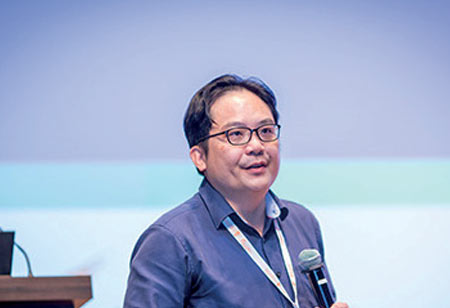THANK YOU FOR SUBSCRIBING
Data Science and Artificial Intelligence in Healthcare
Given the need for deep human touch, health systems around the world can function effectively only with well-trained health workers.

By
Apac CIOOutlook | Saturday, March 26, 2022
Stay ahead of the industry with exclusive feature stories on the top companies, expert insights and the latest news delivered straight to your inbox. Subscribe today.
Given the need for deep human touch, health systems around the world can function effectively only with well-trained health workers. The World Health Organization has projected a shortfall of 18 million health workers by 2030. Singapore is facing a similar scenario of healthcare workforce shortfalls, exacerbated by a fast-aging population. In order to future-proof and ensure the continued accessibility, quality, and affordability of healthcare, the Singapore government has made three key shifts to move beyond the hospital to the community, beyond quality to value, and beyond healthcare to health. In order to achieve this goal, data science and AI technologies can play a key enabling role to alleviate the increasing burden in our healthcare systems.
Beyond looking at the piecemeal application of new technologies, health systems would have to evolve into dynamic learning systems open to the effective adoption of these technologies. The learning healthcare system has been defined as a system where science, informatics, incentives, and culture are aligned with best practices derived through continuous improvement and innovation embedded seamlessly in the care delivery process, with new knowledge captured to establish a lean learning loop. The ability to capture, analyze, and synthesize data for high priority and impactful health service delivery and clinical use cases is an important precursor to the development of efficacious evidence-based interventions. To achieve this, data science and AI have generated much interest in many health systems around the world. The healthcare and biomedical industries are where these technologies would be expected to play a game-changing role in their transformation.
AI goes beyond traditional machine learning (with deep learning as a subfield) and analytics. AI also encompasses the fields of decision science, optimization, expert systems, and intelligent autonomous agents, amongst others. In order to reap optimal gains in the rapidly evolving field of AI, there is a need to bring down silos in the traditional academic, medicine, and health services disciplines. In fact, from the perspective of moving beyond healthcare to health, with individuals at the centre of the healthcare enterprise, the primary care, specialty care, long-term care, public health, and community healthcare resources would all have to work closely in a synergistic manner, taking into account the individual’s socioeconomic environment. To achieve this, the effective utilization and flow of data and information is key.
We did not just come to realize the power and importance of data science and AI in healthcare. The field has undergone cycles of boom and bust over the years. Successes and failures in the ability to deliver through such technologies hold important learning lessons for the continuous development and implementation of AI technologies for healthcare. As an example, thinking in AI governance has started to embrace the importance of fairness and explain ability. Transparency, accountability, and ethical considerations are all important considerations in responsible AI. Investments in data, privacy, and AI governance have driven the rapid evolution of data science and AI technologies towards a more utopic and sustainable trajectory.
For technologies to work well in healthcare delivery, they have to be seamlessly embedded as best practices within the service delivery process. To achieve this, implementation and improvement sciences can play important roles in interweaving new innovations into day-to-day service delivery operations. The rigorous evidence-based paradigm behind implementation science, coupled with rapid improvement cycles built upon the field of improvement science for continuous quality improvements, will enable a virtuous cycle of building trust and establishing traction and momentum for efficient yet rigorous evidence-based adoption cycles.





